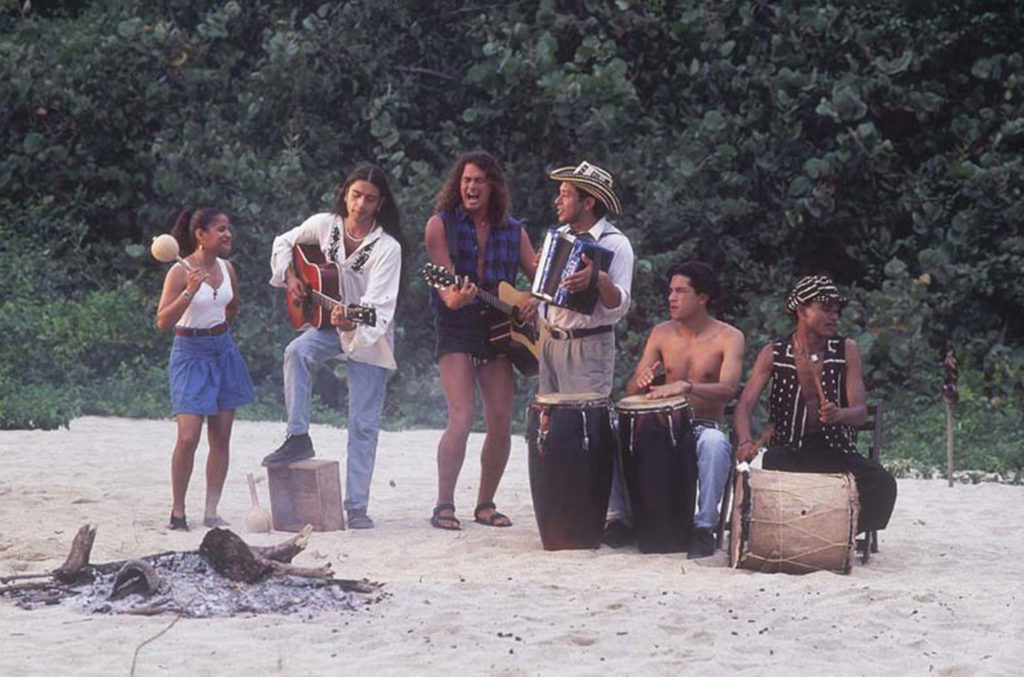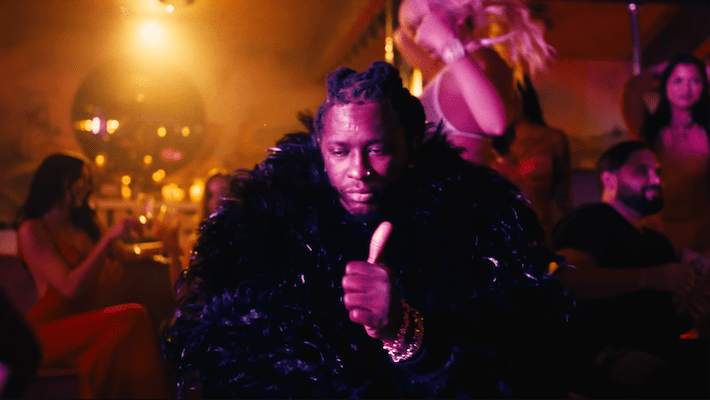A song that married folk with rock and pop changed the course of Colombian music and artists and created a sense of new pride in local sounds
In 1993, Carlos Vives and his band, La Provincia, released his seminal Clásicos de La Provincia [Classics From La Provincia], an album of vallenato standards that made Colombia take note of this most popular –but often snubbed—genre. The set was a resounding success, leading many to believe Vives would come up with a part two.
Instead, along with La Provincia, he dug deep. He and his band stayed on a farm, where for weeks, they worked on a new blueprint for Colombia’s distinctive beats, one that married the most traditional of folk rhythms and genres with a contemporary edge. The Land of the Forgotten (La Tierra del Olvido)—the album and the song that gives it its name—would forever change the course of Colombian music.
The song, written by Vives with Iván Benavides, introduced vallenato to the world and it opened the door for Colombian artists to become global superstars. It also spawned an entire new musical movement, tropi-pop, that blend of pop and rock with Colombian tropical beats that would become the signature of artists from Juanes to Fonseca.
“La Tierra del Olvido” was released 25 years ago this week. In its honor, we asked some of Colombia’s most prominent musicians what the song has meant to them.
CARLOS VIVES
It was a before and after for artists. It was a moment to understand that we could have global hits without losing our local connection. It’s that moment in the life of an artist where you live the moment, you feel the yearning, and you suddenly say, “We have so much here [in our own countries], so much music, why don’t we surprise the industry with something that’s ours, but that they can understand? Let’s surprise them with something that’s not selfish, that touches them, that feels very modern but has that core strength that comes from the music.”
JUANES
“One of the albums, and one of the Colombian artists who most inspired me was Carlos Vives and obviously, his album La Tierra del Olvido, which was the key to open that path for many of us who came later. Particularly because it showed we could mix our folklore with rock and pop.
FONSECA
“La Tierra del Olvido”’ is a song that’s too important for my career. Its harmonic progression marks the beginning of a Colombian and a Latin American sound. The melancholy of the melody and the lyrics, mixed with a beat that literally rocked the floor from the first time I heard it, forever impacted the way I make music.
ANDRES CEPEDA
Carlos’ song is very interesting because it symbolizes so many things. It’s probably the most recognized song in his repertoire and one we Colombians identify with at a national scale. But it also represents the moment Colombian audiences began to appreciate the local, authentic values of a Colombian artist.
Carlos was perhaps the first one to generate that reaction in a strong way. To make us associate certain Colombian music with our country, with our pride, our sense of belonging. The big achievement in Carlos’ career is precisely that. He was one of the first mainstream artists who made us look at the most authentic and real elements of our music, and allowed us to see ourselves as Colombians in those songs. I think that’s the great legacy of Carlos overall and of this song in particular. It symbolizes this our attachment to that famous “forgotten land” which is the Colombian province and Colombia overall.
SEBASTIAN YATRA
La Tierra del Olvido is an album that will forever represent the most beautiful part of my life: Colombia. My country, where my family is, where my values come from, the country, the flag and the colors we fight for every day and give me a reason to smile always. So I am forever grateful to Carlos for this album because it will always influence me, in everything I do, not only in my music, but in every step I take on this world and on this beautiful land.
ANDRES CASTRO
“La Tierra del Olvido” is a powerful song that marks the beginning of a musical search in Colombia. Its writers and producers came up with a unique, new sound that also became an anthem in Colombia and a song that reminds us of Colombia; that sounds like Colombia. As far as my career goes, this song was the foundation in terms of the sound that we later took with Carlos Vives to write songs like “La Cartera,” “Dejame Entrar” or “Volvi a Nacer.” Many songs were the product of that sound; the sound born from the path laid out by “La Tierra del Olvido.”
GOYO
“La Tierra del Olvido” is one of those songs you can never skip when you talk about the history of Colombian music. When I first heard it, I lived in Quibdó [the capital of Chocó] and it was one of those songs many people were singing at the time. When I saw the video, it took me to a very special place that showed the connection between the Caribbean and the Pacific. And it was very exciting, when ChocQuibTown first started, to work with Iván Benavides, who had been part of that production. I later worked with Carlos Vives, and the possibility of making music with him, and sharing so many stages with him, is the greatest appetizer of that dream to take Colombian music to the highest level.
KAREN LIZARAZO
“La Tierra del Olvido” has been one of my guiding lights to be able to do vallenato music and, moreover, fresh, free and youthful vallenato. “La Tierra del Olvido” is a musical icon for any Colombian artist, and for any tropical, vallenato artist in Colombia. A hug to all fans of Vives and “La Tierra del Olvido”.


